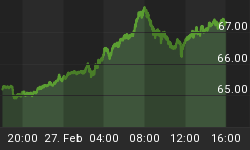Many people have the misconception that sanctions are an effective means to encourage a change of behavior in another country without war. However, imposing sanctions and blockades are not only an act of war according to international law, they are most often the first step toward a real war starting with a bombing campaign. Sanctions were the first step in our wars against Iraq and Libya, and now more sanctions planned against Syria and Iran are leading down the same destructive path.
According to the International Atomic Energy Agency's (IAEA) latest report, just out this month, there is no evidence that Iran has diverted enriched uranium from the peaceful and lawful generation of power toward building a nuclear weapon. According to the Nuclear Non-Proliferation Treaty, Iran has every right to develop nuclear energy for peaceful purposes. Unfortunately, US foreign policy has boxed Iran into a corner where they may view development of a nuclear weapon as the only way to maintain sovereignty. They are surrounded by unfriendly nuclear powers and history has shown that having a nuclear weapon is the best way to avoid being bombed or invaded. The unintended consequences of our confrontational policies toward Iran may be to actually encourage them to seek nuclear weapons capabilities. We should be using diplomacy rather than threats and hostility.
Fortunately there is another way. Nothing promotes peace better than free trade. Countries that trade with each other generally do not make war on each other, as both countries gain economic benefits they do not want to jeopardize. China is a massive nuclear power yet it does not seek military confrontation with the United States. Trade is much more profitable. Also trade and friendship applies much more effective persuasion to encourage better behavior, as does leading by example. Alarmingly, tough new sanctions are under consideration that would also punish Iran's trading partners, including China, Russia, and possibly our NATO allies such as Germany.
Conversely, sanctions allow regimes to blame their shortcomings on foreigners, thereby maintaining a hold on power. They rarely even inconvenience elites in the target countries. They simply provide a common enemy to rally the people against and undermine internal dissent. Consider how well the embargo has worked against Cuba. Fidel Castro and his regime may be annoyed by the inability to trade with their neighbors just 90 miles away, but American businessmen also lose out in the bargain. That means less jobs and less freedom at home.
We should be clear about this: sanctions against Iran are definite steps toward a US attack. Already we see US warships approaching the region, moving dangerously close to Syrian waters. The tougher sanctions currently under consideration would disrupt global trade and undermine the US economy, which in turn harms our national security. Foreign companies or foreign subsidiaries of US companies would be severely punished if they did not submit to the US trade embargo on Iran. We must change our foreign policy to one of economic freedom and diplomacy. That is the only way to promote peace and prosperity. This race to war against Iran and Syria is both foolhardy and dangerous.















